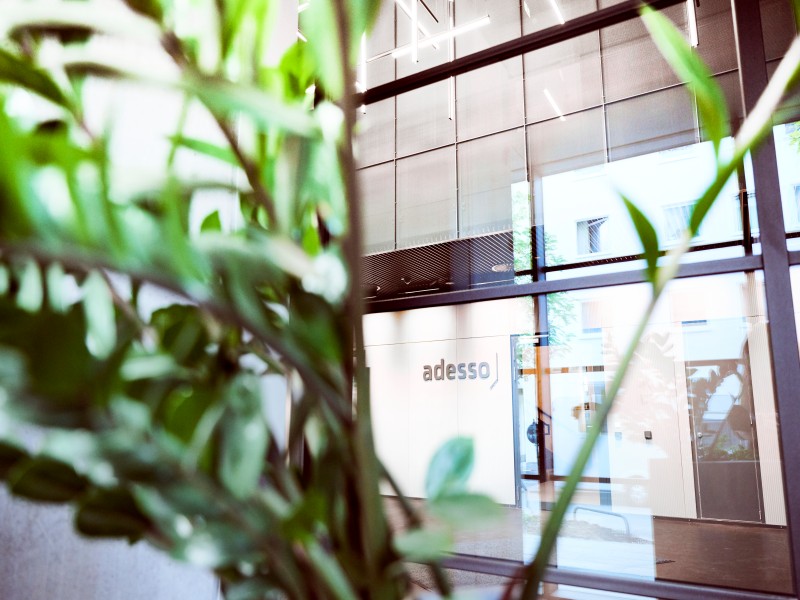29. November 2024 By Christina Sendker
Promoting more sustainable IT through Green Software Workshops for insurers
Over time, IT has become increasingly important and can be considered the core of most insurance companies. It not only enables efficiency increases in existing company structures and processes, but is also an essential driver of innovation and progress in the company. However, current technological development and the more intensive use of technologies also have a significant environmental impact. It is estimated that IT is responsible for half of the Scope 2 emissions of the entire insurance industry. These indirect emissions are caused by energy that the company consumes but does not generate itself. This includes, among other things, the electricity consumption for the operation and cooling of data centres, servers and other IT infrastructure. Against this background, it is becoming increasingly urgent to address and drive forward a sustainable IT transformation.
Opportunities and risks of a sustainable IT transformation
Digital transformation is already an integral part of modern corporate strategies. However, with the increasing presence and importance of the topic of sustainability, a sustainable IT transformation is also increasingly becoming the focus of companies. This development is associated with both opportunities and challenges. On the one hand, there is the opportunity to reduce the ecological footprint, achieve cost savings and generate a positive corporate image. On the other hand, however, high initial investments may have to be expected in some cases, technological challenges may arise and the transformation will be associated with organisational changes. Insurers are navigating this area of tension with the challenge and goal of finding a good balance between economic goals and ecological responsibility. Different roles within the company are affected, because each role has specific tasks that contribute to achieving this balance. For example, management is concerned with the strategic goals in the area of sustainability, while departments such as purchasing, production and IT have to implement and communicate sustainable practices in their respective areas.
Green Software Workshops are a promising approach to addressing the issues described. adesso's Green Software Workshops aim to raise awareness among technical teams in insurance companies of the opportunities and risks of a sustainable IT transformation. It is a specialised format for IT roles and technologies that aims to enable participants to develop and implement more environmentally friendly software solutions. The workshops introduce best practices, innovative technologies and sustainable strategies with the aim of developing ideas tailored to the respective insurance company to minimise, among other things, the energy consumption and CO2 emissions of software applications.
The relevance of Green Software Workshops for insurers
Due to the high proportion of IT in Scope 2 emissions in the insurance industry, sustainable IT transformation is essential. In addition, continuous improvement of sustainability performance requires well-trained employees. Our workshops support this by enabling the IT team to integrate sustainability aspects firmly into their work processes. Finally, the focus should be on long-term effectiveness. While one-off measures such as audits and optimisations can usually only achieve short-term success, building internal expertise through training in the form of workshops ensures sustainable transformation.
What participants can expect in our Green Software Workshops
- Sensitisation and awareness raising: In everyday life, there is often a lack of awareness of how much one's own decisions can influence energy consumption. An essential goal of our workshops is therefore to transparently present the environmental impacts of software and to raise general awareness of the topic. Through practical use cases and the communication of best practices within our workshops, an understanding of the importance of sustainable software development is sustainably promoted.
- Energy-efficient programming: Our workshops examine programming from the perspective of energy efficiency. Methods, techniques and measures that enable energy-efficient programming in everyday work are explained. The energy consumption of the applications used can be significantly reduced simply by optimising algorithms, minimising computing operations and using memory resources efficiently.
- Using renewable energies: The energy needs of data centres and server farms are constantly increasing, which, among other things, leads to higher operating costs and also has a negative impact on the ecological footprint. The integration of renewable energies into IT operations is one possible approach to counteract this trend. In the context of the workshop format, this approach is to be discussed against the background of the question of what advantages and disadvantages such an integration entails and what needs to be considered in principle.
- Designing sustainable architecture: Optimising and streamlining IT landscapes and IT architectures is also considered in the workshops in the context of sustainable architecture design. The focus here is on how software architectures can be designed to reduce the energy consumption of applications over their entire life cycle.
Use tools and technologies: Existing tools and technologies can help to monitor and analyse the energy consumption of applications in a structured way. The tool- and technology-based analyses can then be used as a starting point for targeted optimisations. In order to gain insight into the diverse functions of such tools, selected tools and technologies are presented and discussed in the workshops.
The path to sustainable success through green software workshops
- Comply with legal requirements: The increasing regulation in the area of sustainability increases the pressure on insurance companies to deal with the legal requirements and ensure compliance. The Green Software Workshops help to understand the requirements for insurers resulting from the legal requirements, to derive options for action from them and then to implement them.
- Reducing operating costs: IT has a significant influence on operating costs. The costs for operation and maintenance alone account for a considerable portion of operating costs. In addition, inefficient processes due to outdated systems can significantly increase the operating costs of an insurance company. The workshop format therefore focuses on measures for optimising the IT infrastructure with the aim of reducing operating costs in the long term.
- Promoting innovation and competitiveness: Sustainable IT projects, such as the use of energy-efficient technologies, promote innovation and increasingly help to set you apart from the competition and generate competitive advantages. Sustainable IT offers the opportunity to strengthen your own market position and ensure long-term success.
Promoting more sustainable IT is an important step in reducing energy consumption and CO2 emissions in your company – and in the long term in the entire insurance industry.
Addressing the topic of sustainable IT transformation offers not only ecological, but also economic and strategic advantages for insurers. The workshop format offers you the opportunity to develop an approach tailored to your company by incorporating best practices, innovative technologies and sustainable strategies, and to minimise the energy consumption and CO2 emissions of your company's software applications in the long term.
You can find more exciting topics from the adesso world in our blog posts published so far.
Also interesting:
Green Insurance: Nachhaltige Versicherungslösungen für die Zukunft
Klimaschutz und Nachhaltigkeit gewinnen auch in der Versicherungsbranche zunehmend an Bedeutung. adesso unterstützt Versicherungsunternehmen bei der Entwicklung grüner Produkte und der Umsetzung nachhaltiger Geschäftsmodelle. Erfahrt, wie ihr mit „Green Insurance“ ökologische Verantwortung übernehmt und euch als zukunftsorientiertes Unternehmen positioniert.

